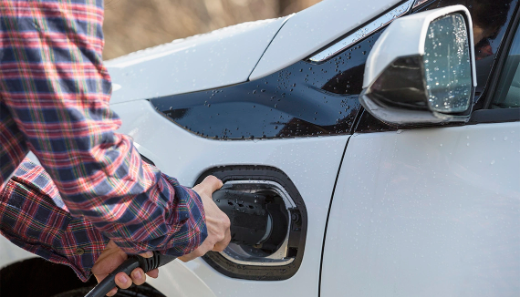
News on June 26, Professor Kim Won-bae and his research team at Pohang University of Science and Technology (POSTECH) in South Korea recently made an important breakthrough. They used manganese ferrite (Mn3-xFexO4) nanosheets as lithium-ion batteries. The anode material successfully improves the energy storage capacity and charging speed of the battery by regulating the electron spin. This research result has been published in the magazine "Advanced Functional Materials" and was selected as the cover article.
According to what the editor knows, even if fast charging is used, the current charging time of electric vehicles is still long, usually taking at least 30 minutes. The research of Professor Jin Yuanpei and his team brings new hope for the charging time of electric vehicles.

#The efficiency of lithium-ion batteries mainly depends on the ability of the anode material to store lithium ions. The team led by Professor Jin Yuanpei developed a new anode material and successfully synthesized manganese ferrite nanosheets with a large surface area through a self-mixing method. This new material breaks through theoretical limits and can store more lithium ions.
In the research, the team designed a new method to prepare manganese ferrite nanosheets, a material with excellent lithium ion energy storage capacity and good ferromagnetism. They formed a heterostructure compound by performing a displacement reaction in a solution of manganese oxide and iron, and then used a hydrothermal method to prepare nanoscale manganese ferrite nanosheets. Taking advantage of the high spin polarization of electrons, this method greatly improves the storage capacity of lithium ions.
This innovation allowed the team to successfully break through the theoretical capacity of the manganese ferrite anode material and increase the surface area of the anode material, thereby increasing the charging speed of the battery. Experimental results show that it only takes 6 minutes to fully charge a battery with a capacity equivalent to that of electric vehicles currently on the market.

Professor Jin Yuanpei said that this research simplifies the complex process of preparing anode materials and has made significant progress in increasing battery capacity and speeding up charging. He is optimistic about the commercial prospects of this technology and believes it can improve the battery life of electric vehicles and shorten charging time.
This research was supported by the National Research Foundation of Korea and the Ministry of Science, Technology and Communications, including the Mid-Term Investigator Program and the Advanced Research Center Program, and the Next-Generation Rechargeable Li-ion Battery Performance Improvement from the Ministry of Trade, Industry and Energy and new manufacturing technology development programs.
This research breakthrough could become an important milestone in the field of lithium-ion battery chemistry. If commercialized successfully, this technology could revolutionize battery performance in electric vehicles and other devices. This technology can not only significantly increase battery capacity and reduce lithium usage, but also significantly shorten charging times. I hope this technology can be commercialized as soon as possible and make an important contribution to the development of electric vehicles.
The above is the detailed content of Korean scientists develop new nanomaterials to improve lithium-ion battery energy storage capacity and charging speed. For more information, please follow other related articles on the PHP Chinese website!
 How to unlock android permission restrictions
How to unlock android permission restrictions
 There are several output and input functions in C language
There are several output and input functions in C language
 Solutions to unknown software exception exceptions in computer applications
Solutions to unknown software exception exceptions in computer applications
 How to use spyder
How to use spyder
 Ripple trading platform
Ripple trading platform
 What are the benefits of java factory pattern
What are the benefits of java factory pattern
 memcpy function usage
memcpy function usage
 What software is premiere
What software is premiere




